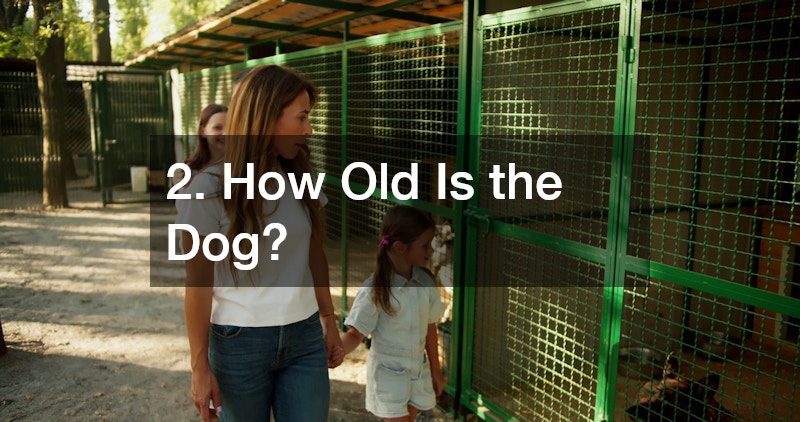
Welcoming a dog into your home is an exciting and rewarding decision, but it’s also a big commitment. To ensure a successful match, it’s important to ask the right questions before you bring home a new furry friend. Whether you’re visiting a shelter, rescue group, or fostering first, doing your due diligence helps avoid surprises and sets you and your dog up for long-term happiness.
This guide outlines 10 essential questions every future pet parent should ask before adopting a dog. These questions will help you evaluate your readiness, understand the dog’s needs, and choose a companion that fits your lifestyle. Let’s get started!
1. What is the Dog’s Background and History?
Understanding the dog’s background is vital. Ask the shelter or rescue about the dog’s past—was it a stray, surrendered, or rescued from neglect? This information can provide clues about potential behavior issues or trauma. While some dogs bounce back quickly, others may need more time and patience to adjust.
If the history is unknown, ask how the dog has behaved in the shelter or foster home. Knowing what to expect helps prepare your home and family accordingly.
2. How Old Is the Dog?

A dog’s age plays a huge role in its energy level, health requirements, and training needs. Puppies require time-intensive training and socialization. Adult dogs may already be house-trained but still need structure and daily activity. Seniors are typically calmer and great for quieter households, but may come with medical needs.
Ask for the dog’s approximate age and whether any age-related health conditions are present. This helps you plan ahead for future vet care and lifestyle adjustments.
3. Is the Dog Good with Children or Other Pets?
If you have kids, cats, or other dogs at home, this is a critical question. Some dogs may thrive in a bustling household, while others may prefer peace and quiet.
Ask whether the dog has been tested around children, other dogs, or small animals. If not, inquire if you can arrange a meet-and-greet to evaluate compatibility. The goal is to ensure safety and harmony for everyone in the home.
4. What Are the Dog’s Energy Levels and Exercise Needs?
Every breed and individual dog has unique energy levels. A high-energy dog like a Border Collie may need hours of physical and mental stimulation daily, while a Pug might prefer shorter walks and cuddle time.
Be honest about your lifestyle. Ask how often the dog needs to be walked, whether it enjoys fetch or playtime, and if it’s comfortable being left alone. Adopting a dog whose energy matches yours is key to a happy partnership.
5. Has the Dog Received Any Training?
Training sets the foundation for a well-behaved pet. Find out whether the dog knows basic commands like sit, stay, or come. Ask if it’s leash-trained, crate-trained, or housebroken.
If the dog hasn’t been trained, ask if they’ve shown willingness to learn or if they’ve participated in obedience classes. Keep in mind, older dogs can learn new tricks—it just takes patience and consistency.
6. What Are the Dog’s Health Conditions and Vet History?
Ask whether the dog is up to date on vaccinations, has been spayed or neutered, and has received regular vet checkups. Request a full medical history if available.
Find out if the dog has chronic conditions (like allergies or joint issues) that require ongoing care. Being aware of the dog’s health needs allows you to prepare emotionally and financially for their future well-being.
7. What Kind of Food Does the Dog Eat?
Dogs have different dietary needs based on age, size, and health. Switching food abruptly can cause digestive issues, so it’s important to know what the dog is currently eating.
Ask if the dog has any known allergies, sensitivities, or special dietary requirements. If you plan to change its diet, ask how to transition food gradually to avoid stomach upset.
8. What Is the Dog’s Temperament?

Temperament is often more important than breed. Ask the shelter staff or foster family to describe the dog’s personality: Is it shy or outgoing? Affectionate or independent?
This insight helps you understand how the dog might react in different scenarios, such as guests arriving, children playing, or being left home alone. Knowing the temperament also helps you tailor training and bonding activities accordingly.
9. Why Is the Dog Being Put Up for Adoption?
Knowing the reason for the dog’s surrender can help you assess whether its previous environment matches yours.
Some dogs are rehomed due to changes in their owners’ lives, like moving, allergies, or financial hardship, rather than behavioral issues. Others may have been relinquished due to challenges that you might be prepared to handle, such as separation anxiety or chewing.
Clarify these details so you know what to expect and whether you’re ready for the responsibility.
10. Are You Truly Ready for the Commitment?
This question isn’t for the shelter—it’s for you. Dogs require daily care, love, time, and money for 10–15 years. Think about your schedule, budget, and long-term plans.
Ask yourself:
- Can I afford vet bills, food, and supplies?
- Am I prepared to exercise and train my dog daily?
- What happens if I move or have life changes?
If the answer is yes, then you’re on the right track to becoming a responsible dog owner.
Bonus: Thinking About Adopting a Rescue Dog?
If you’re specifically considering adopting a rescue dog, these questions are even more critical. Rescue dogs often come with unique histories that require extra compassion and patience. Ask the shelter about their rehabilitation efforts, behavioral assessments, and post-adoption support.
Many rescue dogs blossom in the right environment. Your questions—and your willingness to provide a safe, stable home—can be the key to a successful adoption story.
